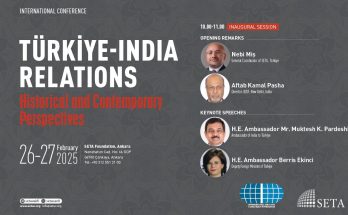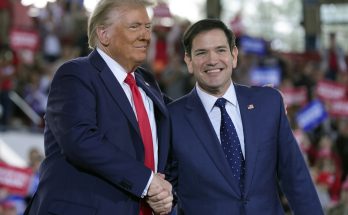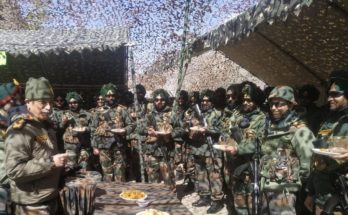 NEW YORK: India and Pakistan have spoken about a “new beginning” in their accident-prone relations many a time, but the much-hoped for new dawn has been often darkened by brutal acts of terror emanating from across the border.
NEW YORK: India and Pakistan have spoken about a “new beginning” in their accident-prone relations many a time, but the much-hoped for new dawn has been often darkened by brutal acts of terror emanating from across the border.
A day before his meeting with his Pakistani counterpart Nawaz Sharif in New York, India’s Prime Minister Manmohan Singh has yet again reminded his Pakistani interlocutor that any progress in normalising strained ties will depend on Islamabad honouring its counter-terror pledge. In his pointed speech at the United Nations General Assembly, Manmohan Singh alluded to Sharif’s desire for a new beginning and stressed that he reciprocated his sentiments, but made it abundantly clear that for that to happen, “the territory of Pakistan and the areas under its control are not utilized for aiding and abetting terrorism directed against India.” “It is equally important that the terrorist machinery that draws its sustenance from Pakistan be shut down,” Manmohan Singh stressed.
For a leader who has invested enormous political capital in turning around India’s prickly relations with Pakistan, the continuing acts of terror emanating from the Pakistani territory – the latest attack occurred only a few days ago when a group of militants targeted a police station and an army base in Jammu and Kashmir Sept 25, killing 12 people — have been a matter of deep anguish. He aired his mounting frustration at Pakistan’s failure to deliver on the much-iterated anti-terror pledge. “State-sponsored cross-border terrorism is of particular concern to India, also on account of the fact that the epicentre of terrorism in our region is located in our neighbourhood in Pakistan,” he told world leaders at the UNGA.
Repudiating Sahrif’s advocacy of Kashmir’s act of self-determination in his UNGA speech, the Indian prime minister also made it clear that any enduring improvement in relations will depend on “a clear understanding of the fact Jammu and Kashmir is an integral part of India and that there can never, ever, be a compromise with the unity and territorial integrity of India.”
 Addressing world leaders at the UNGA, Manmohan Singh exhorted the international community “for concerted, cohesive and continuing global action against terrorism.” “There can be no tolerance for states sheltering, arming, training or financing terrorists. Nor can they absolve themselves of the responsibility to prevent their territories from being used to launch acts of terrorism,” he said in a veiled reference to Pakistan.
Addressing world leaders at the UNGA, Manmohan Singh exhorted the international community “for concerted, cohesive and continuing global action against terrorism.” “There can be no tolerance for states sheltering, arming, training or financing terrorists. Nor can they absolve themselves of the responsibility to prevent their territories from being used to launch acts of terrorism,” he said in a veiled reference to Pakistan.
The meeting between Manmohan Singh and Sharif, their first face-to-face meeting since Sharif’s election victory in May, at New York Palace hotel Sept 29 is set to be the headline-hogging event of his five-day visit of the US, but the expectations of any breakthrough are minimal. Manmohan Singh himself has lowered the expectations. On September 27, after his talks with US President Barack Obama in Washington, the prime minister said “the epicenter of terror still remains focused in Pakistan.”
 Sharif, for his part, has been rooting for better relations with India since he came to power in May. In his speech before the UNGA, Sharif said: “Pakistan and India can prosper together, and the entire region would benefit from our cooperation.” Sharif stressed that he was looking forward to his meeting Manmohan Singh and underlined that he hoped to pick up the threads from where we left in 1999,” an allusion to his historic meeting with then Prime Minister Atal Bihari Vajpayee, who travelled to Lahore by bus in 1999 to revitalize engagement with Pakistan.
Sharif, for his part, has been rooting for better relations with India since he came to power in May. In his speech before the UNGA, Sharif said: “Pakistan and India can prosper together, and the entire region would benefit from our cooperation.” Sharif stressed that he was looking forward to his meeting Manmohan Singh and underlined that he hoped to pick up the threads from where we left in 1999,” an allusion to his historic meeting with then Prime Minister Atal Bihari Vajpayee, who travelled to Lahore by bus in 1999 to revitalize engagement with Pakistan.
However, the latest attacks in Jammu and Kashmir ahead of the meeting between the leaders of India and Pakistan, suggests a radical disconnect between the civilian and military establishments in Pakistan. The multiple centres of power in Pakistan, with the powerful Pakistani Army dictating the agenda on Pakistan’s relations with India, have made any meaningful and enduring improvement in bilateral ties that much more difficult. This has been evident in repeated efforts by saboteurs, allegedly at the behest of Pakistan’s military-ISI complex, to scuttle engagement between India and Pakistan.
(Manish Chand is Editor-in-Chief of India Writes, www.indiawrites.org, an online magazine and journal focused on international affairs, the India Story, emerging powers and dialogue among cultures).
Author Profile

- Manish Chand is Founder-CEO and Editor-in-Chief of India Writes Network (www.indiawrites.org) and India and World, a pioneering magazine focused on international affairs. He is CEO/Director of TGII Media Private Limited, an India-based media, publishing, research and consultancy company.
Latest entries
 India and the WorldFebruary 14, 2025Modi-Trump COMPACT: India, US launch MEGA partnership for 21st century
India and the WorldFebruary 14, 2025Modi-Trump COMPACT: India, US launch MEGA partnership for 21st century India and the WorldJanuary 28, 2025Modi, Trump talk global peace, focus on strategic connect
India and the WorldJanuary 28, 2025Modi, Trump talk global peace, focus on strategic connect India and the WorldDecember 16, 2024Kazan Spirit: India, China SRs to hold talks in Beijing
India and the WorldDecember 16, 2024Kazan Spirit: India, China SRs to hold talks in Beijing India and the WorldDecember 10, 2024Malta backs stronger ties, sees India as a rising global power: Envoy
India and the WorldDecember 10, 2024Malta backs stronger ties, sees India as a rising global power: Envoy







